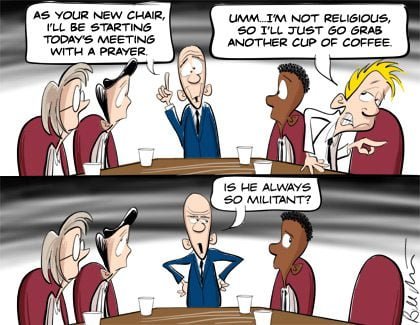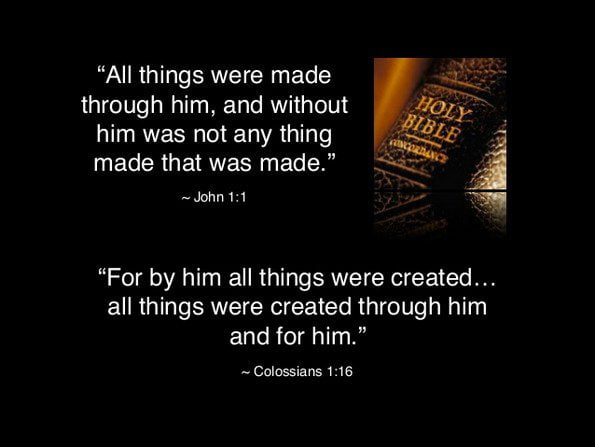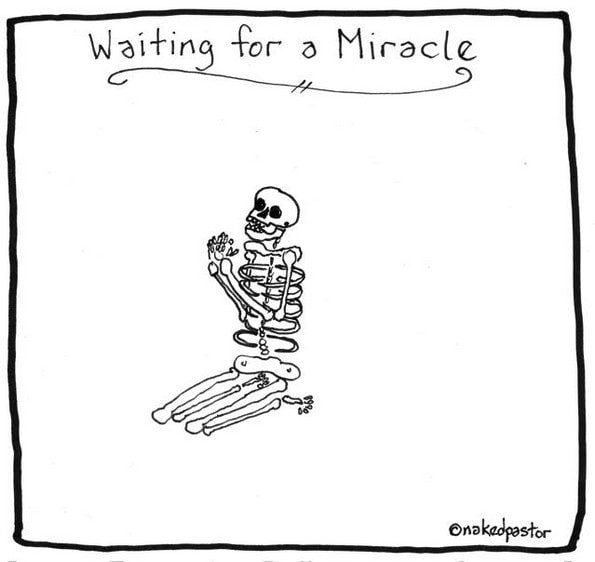
Why do I get upset when Evangelicals (and other Christians) say, “I’m praying for you?”
First, Evangelicals who say this to me deliberately violate the clear teaching of the Bible. Did Jesus not say:
Beware of practicing your righteousness before others in order to be seen by them, for then you have no reward from your Father in heaven.
So whenever you give alms, do not sound a trumpet before you, as the hypocrites do in the synagogues and in the streets, so that they may be praised by others. Truly I tell you, they have received their reward. But when you give alms, do not let your left hand know what your right hand is doing, so that your alms may be done in secret, and your Father who sees in secret will reward you.
And whenever you pray, do not be like the hypocrites, for they love to stand and pray in the synagogues and at the street corners, so that they may be seen by others. Truly I tell you, they have received their reward. But whenever you pray, go into your room and shut the door and pray to your Father who is in secret, and your Father who sees in secret will reward you. (Matthew 6:6 NRSV)
These verses seem clear, without ambiguity. Jesus commanded his followers to give and pray in secret. Why, then, do so many Evangelicals think it important for them to tell me that they are praying for me?
Second, I ask Evangelical readers in the comment guidelines to not leave “I’m praying for you” comments. Unlike some readers of this blog, I find no value or purpose in telling people you are praying for them. God is a myth, and so is “answered” prayer. I view prayer in the same light as I do God — a waste of time. It’s fine if Christians think differently, but understand that telling me that you are beseeching the God of the Bible on my behalf does little more than irritate me. Why do something that you KNOW will irritate the hell out of me? Especially since my knowing that someone is praying for me plays no part in whether God answers said prayer.
Third, praying for me is literally the least you can do for me, no different than politicians who offer up “thoughts and prayers” when there is another mass casualty shooting. Countless Christian prayers will be offered up for the dead. Why? They are dead. Instead of prayers, how about actually doing something that will make a meaningful difference?
Thousands of people have allegedly prayed for me. I say allegedly because I know Evangelicals are famous for lying about praying for others, or they briefly pray one time and move on. Instead of doing something that will tangibly improve my life, Evangelicals choose the one thing — prayer — that does nothing for me.
I have been blogging for seventeen years. I can count on two fingers the number of Evangelicals who have done something material for me; something that would make a difference in my life. The two people I have in mind sent me money to help with my needs. Is this not the essence of loving your neighbor as yourself? I am known for being a big tipper when we go out to eat. During the holidays, it is not uncommon for me to leave a tip equal to the bill total. I do this for one reason; to be a blessing and help to others — no strings attached. I should add that these two people — both preachers — have left Christianity. Beware of giving money to Bruce Gerencser. It could cause you to lose your faith. 🙂
One of my biggest beefs with Evangelical churches is that they rarely, of ever, do anything just to be a help to others. Years ago, an Evangelical preacher named Iggy left a comment detailing all the things he and his church did to be a blessing to others. I dared to question the motivations behind these acts of love. Boy, did we have a digital fight. 🙂 I concluded that the goal was not helping others as much as it was advertising the church’s and pastor’s name.
Will this post keep Evangelicals from saying they are praying for me? Silly boy, of course not. Evangelicals gonna do what Evangelicals do.
Bruce Gerencser, 68, lives in rural Northwest Ohio with his wife of 47 years. He and his wife have six grown children and sixteen grandchildren. Bruce pastored Evangelical churches for twenty-five years in Ohio, Texas, and Michigan. Bruce left the ministry in 2005, and in 2008 he left Christianity. Bruce is now a humanist and an atheist.
Your comments are welcome and appreciated. All first-time comments are moderated. Please read the commenting rules before commenting.
You can email Bruce via the Contact Form.











